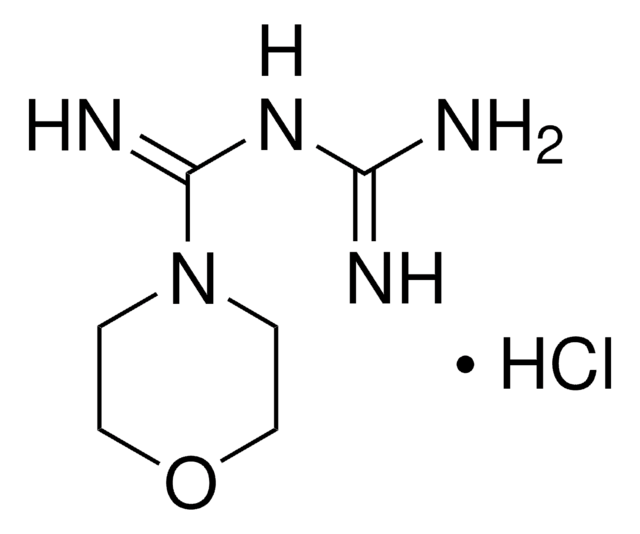C8527
Chlorhexidine dihydrochloride
≥98%
Synonym(s):
1,6-Bis(N5-[p-chlorophenyl]-N1-biguanido)hexane; 1,1′-Hexamethylenebis(5-[p-chlorophenyl]biguanide), Lisium
About This Item
Recommended Products
Quality Level
Assay
≥98%
form
powder
storage temp.
2-8°C
SMILES string
Cl.Clc1ccc(NC(=N)NC(=N)NCCCCCCNC(=N)NC(=N)Nc2ccc(Cl)cc2)cc1
InChI
1S/C22H30Cl2N10.2ClH/c23-15-5-9-17(10-6-15)31-21(27)33-19(25)29-13-3-1-2-4-14-30-20(26)34-22(28)32-18-11-7-16(24)8-12-18;;/h5-12H,1-4,13-14H2,(H5,25,27,29,31,33)(H5,26,28,30,32,34);2*1H
InChI key
WJLVQTJZDCGNJN-UHFFFAOYSA-N
Looking for similar products? Visit Product Comparison Guide
Storage Class Code
11 - Combustible Solids
WGK
WGK 3
Personal Protective Equipment
Choose from one of the most recent versions:
Already Own This Product?
Find documentation for the products that you have recently purchased in the Document Library.
Customers Also Viewed
Our team of scientists has experience in all areas of research including Life Science, Material Science, Chemical Synthesis, Chromatography, Analytical and many others.
Contact Technical Service











